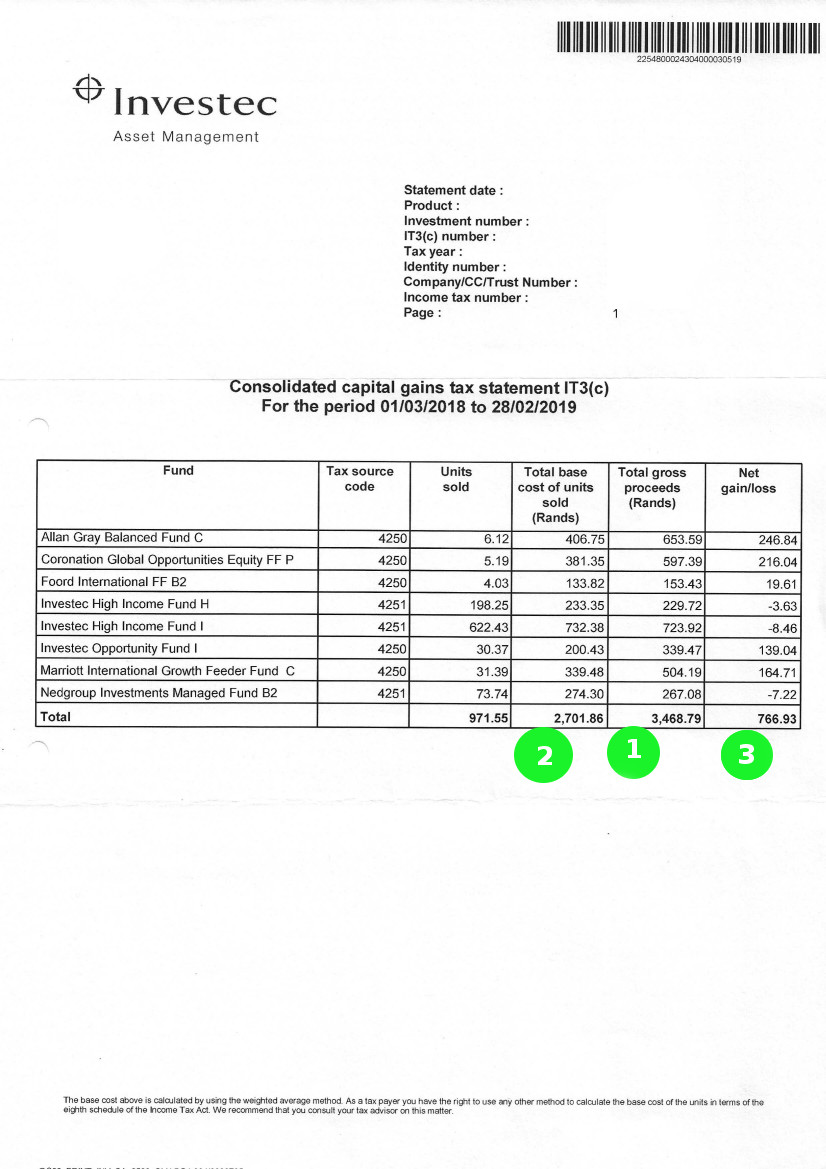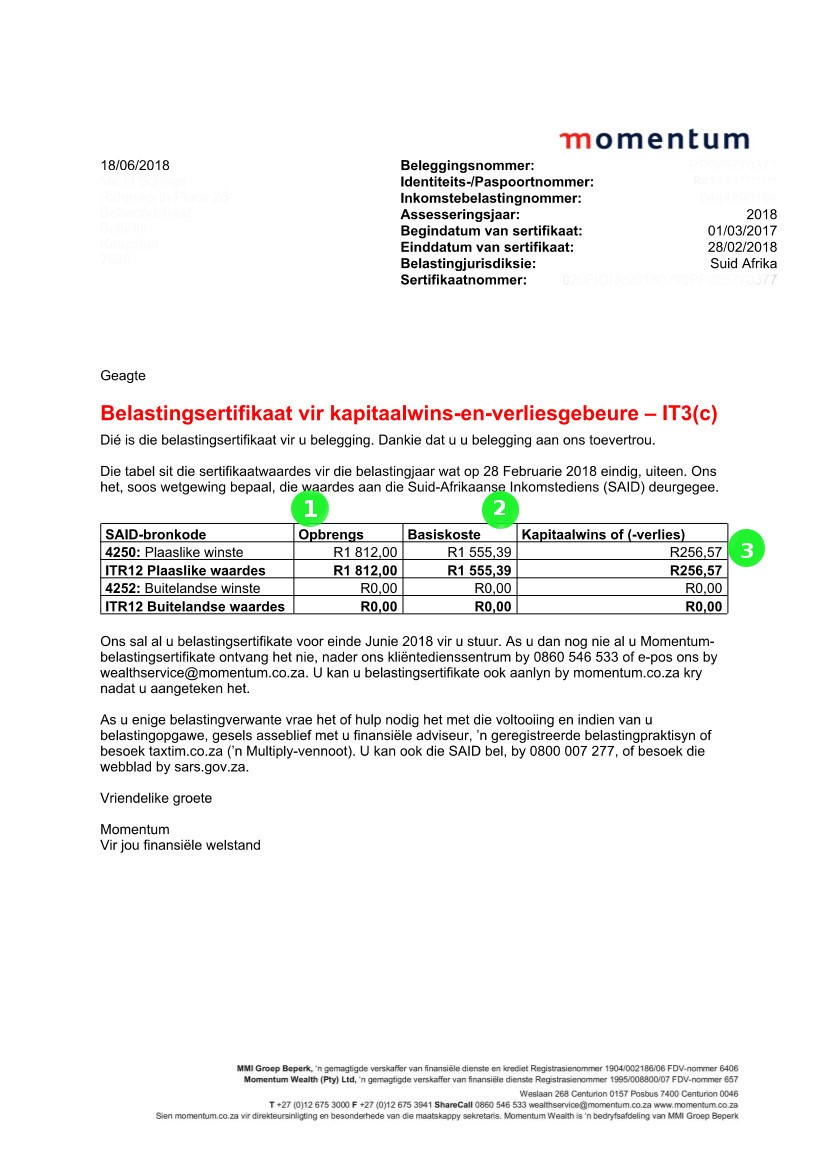Provisional Tax Penalties

Written by Neo
Updated 1 February 2025
Seasoned provisional taxpayers – those people who earn income from sources other than, or in addition to a regular ol' salary or traditional payment from an employer - are all too familiar with the process of estimating taxable income and submitting provisional tax returns. Not once - but twice a year!
Yes, it's a bit painful (although TaxTim makes it super easy) but entirely necessary if you don't want to be lumped with penalties from SARS...
Read more →
Sole Proprietor or Company: What's Best for Tax?

Written by Vee
Updated 21 November 2024

Getting a new business venture off the ground is an equally exciting and stressful time. You’re enthusiastic about getting your new product or service out into the market, but you face quite an administrative process to get it off the ground legally.
Read more →
Important Tax Filing Reminder: Don't Miss the Deadline

Written by Nicci
Updated 30 September 2024
If you're a regular employee (i.e non-provisional taxpayer), your tax filing deadline is 21 October 2024. But, if you do fall into the provisional taxpayer category, your deadline extends to 20 January 2025.
However, it's super important to note that if you were auto-assessed, then your deadline is 21 October 2024 even if you qualify as a provisional taxpayer.
Now, if you're thinking about waiting until the later deadline next year and consider yourself a provisional taxpayer,...
Read more →
The 3 R's: Returns, Rebates and Refunds Explained

Written by Marc
Updated 16 July 2024
When it comes to tax jargon, most people prefer to bury their heads in the sand instead of trying to understand all the confusing terms that tax practitioners use. Taxpayers just want to do their tax quickly and easily, and if they’re due - receive some money back from SARS. A lot of confusion surrounds the process, but by understanding three simple terms you can make tax season a little bit easier.
Read more →
Navigating around your Easy Equities tax certificate (IT3c)

Written by Neo
Updated 29 April 2024

1. This is the gross base cost of all shares you bought through the institution. You must NOT use this value on your return.
2. This is the base cost i.e the costs attached to the sale of your shares. This amount needs to be entered as the base cost in the capital gains section of your tax return.
3. This is the...
Read more →
Navigating around your Allan Gray tax certificate (IT3c)

Written by Neo
Updated 20 March 2024

1. This is the proceeds i.e the value that your shares were sold for. This amount needs to be entered as proceeds in the capital gains section of your tax return.
2. This is the base cost i.e the costs attached to the sale of your shares. This amount needs to be entered as the base cost in the capital gains section of your tax return....
Read more →
Do You Need to Ring-Fence Your Business or Rental Losses for Tax?

Written by Vee
Updated 19 March 2024

When pursuing a business activity, trade or renting out a property, you’re no doubt doing so to make some money, but the reality for self-starters
Read more →
Provisional Taxpayers: Unpacking Your Tax Season Deadline

Written by Nicci
Posted 19 October 2022
Tick-tock, time is running out for non-provisional taxpayers to submit their 2022 tax return. The filing deadline of 24 October 2022 is just around the corner.
Provisional Taxpayers: your tax return filing deadline is 23 January 2023. Breathe easy.
If you ‘think’ you are a Provisional Taxpayer, we strongly suggest you make 100% sure you me...
Read more →
Calculate interest on late provisional tax payment

Written by Evan
Posted 28 December 2021
SARS charges interest on late payments made toward provisional tax deadlines.
To calculate this late payment penalty, use the formula below:
Provisional tax amount x 7% x (days after deadline / 365)
Use the calculator below:
Read more →
SARS can now fine you or take you to jail for these tax mistakes

Written by Patrick
Posted 18 June 2021
In the past SARS needed to prove that a taxpayer had committed a tax crime “willfully and without just cause” but the legislation has just been changed. The court can now find you guilty of a tax crime even in cases of negligence or even in a case where the taxpayer may have made a mistake.
The amended law separates non-compliance into two groups: the first is where the taxpayer’s intention is not considered, and the other group is where the taxpayer’s intentio...
Read more →
IRP5 FAQs

Written by Neo
Posted 22 February 2021
What is an IRP5?
An IRP5 is the employee's tax certificate that is issued to him/her at the end of each tax year detailing all employer/employee related incomes, deductions, and related taxes. The employee uses it specifically to complete his/her income tax return for a specific year.
Do I need an IRP5?
Yes, you do if you were employed during the tax year.
Can I submit a return without an IRP5? OR Am I able to submit returns without my IRP5? OR Are you able to submit without the IRP5?...
Read more →
FAQ: Provisional Tax

Written by Nicci
Posted 9 February 2021
1. How many returns should I file each year if I am a provisional taxpayer?
You are required to file 3 returns i.e. 2 provisional tax returns (IRP6s) and one annual return (ITR12). The reason you need to file the annual return too is because your provisional returns are based on an estimate of your taxable income, while the annual return reflects your actual taxable income. Any provisional payments you have made for the year will be deducted from your final tax liability, which is, calculated when you submit your annual tax return for assessment.
2...
Read more →
Top Tips for Provisional Taxpayers

Written by Neo
Posted 9 February 2021
1. Estimate your taxable income for the whole tax year
Remember that both your first and second provisional return (IRP6) must reflect an estimate of your taxable income for the full 12 months of the tax year.
Read more →
Navigating around your Capital gains tax certificate (IT3C)

Written by Alicia
Posted 15 May 2020
If you have shares (financial instruments) , there is important information on your IT3C tax certificate which needs to be included in your tax return.
This will ensure your taxable income is calculated accurately with the correct capital gain or loss included.
Do you have shares at any of the following institutions?...
Read more →
Navigating around your Investec investment tax certificate (IT3c)

Written by Neo
Posted 12 May 2020

1. This is the proceeds i.e the value that your shares were sold for. This amount needs to be entered as proceeds in the capital gains section of your tax return.
2. This is the base cost i.e the costs attached to the sale of your shares. This amount needs to be entered as the base cost in the capital gains section of your tax return....
Read more →
Navigating around your Momentum tax certificate (IT3c)

Written by Neo
Posted 12 May 2020

1. Opbrengs/Proceeds i.e the value that your shares were sold for. This amount needs to be entered as proceeds in the capital gains section of your tax return.
2. Basiskoste/Base Cost i.e the costs attached to the sale of your shares. This amount needs to be entered as the base cost in the capital gains section of your tax return.
...
Read more →
Do I earn enough to have to pay tax?

Written by Marc
Posted 23 April 2020
Why must I pay tax, I don’t earn enough! Will I get a penalty if I don’t disclose all my income to SARS?
Read more →
10 Ways to Spend Your Tax Refund

Written by Vee
Posted 8 April 2020
It’s tax season, and one of the most compelling reasons to file a tax return (besides the fact that it’s the law, of course) is the chance that you’ve
Read more →
Provisional Tax FAQs

Written by Neo
Posted 6 April 2020
What is a provisional tax?
Provisional tax is paid by people who earn income other than a salary / traditional remuneration paid by an employer.
How do I convert from a provisional taxpayer to a regular taxpayer? OR How do I de-register as a Provisional Taxpayer?
Your tax number stays the same, just make sure that it has not been deactivated. This has happened in some cases. You will also need to de-register as a Provisional Taxpayer (this won’t affect your tax number) You can do this on eFiling by going to the Home Tab and clicking Tax Types and de-registering there. This will mean you are only a "regular" taxpayer...
Read more →
TaxTim’s top tips for Provisional Taxpayers

Written by Marc
Posted 12 February 2019
- Don’t offset losses – SARS may not allow this
If you run a business or rental property, which is running at a loss, don’t offset this loss against other taxable income you may have when calculating your estimated taxable income for your provisional return.
Read more →
Alert: Change to Provisional Taxpayer Rules

Written by Neo
Posted 23 March 2017
Currently, there is a legal obligation for South African resident employers to register with SARS for employee’s tax (PAYE) so they can withhold tax on a monthly basis from their employees’ salaries, and pay this over to SARS. However, the situation is different for foreign companies who employ South African residents. If these companies don’t have an office or a branch or some other legal representation in South Africa, they don’t have an obligation to register with SARS for PAYE...
Read more →
2017/2018 Budget - The rich are going to pay more, but what does that mean for the rest of us?

Written by Marc
Posted 22 February 2017
Personal Tax Rates (rates below)
Individuals across the country, those qualifying above the new tax threshold of R75 750 (previously R75 000) will be paying increased taxes of R16.5bn (previously R5.65bn in actual tax increase) for the next tax year, most of this will be for high income earners, however. Taxpayers generally across the board will be earning the tiniest bit more money each year as their tax brackets...
Read more →
The Smart Way to Save Tax when Renting out a Property

Written by Marc
Posted 8 April 2016
Taxpayers who earn rental income from a second property of theirs often don’t know what they need to do when it comes to declaring this income to SARS. Sometimes taxpayers think that they don’t have to declare this extra income, or can hide it from SARS by not entering it on their tax return form - a big mistake!
The truth is that extra income earned from rental is taxable, and SARS needs to know about it. In some cases - if the amount earned (profit) outside of a sala...
Read more →
How to manage your tax affairs running a business in your own name as a sole-proprietor

Written by Marc
Posted 1 October 2012
South Africa is brimming with entrepreneurs and small business owners who keep the economy running. These people may or may not be earning a regular salary too, but all of them operate a non-registered business in their own name - a so-called sole-proprietorship. In this blog post we will discuss how such a business pays tax, how it is taxed, and how to separate personal and business affairs to make tax deductions correctly.
To register or not to register as a company?
...
Read more →
I'm retired at 65 years and older - what income tax benefits do I qualify for in retirement?

Written by Marc
Posted 23 July 2012
It would seem that SARS often prioritises younger taxpayers who are still working and receive a constant flow of income. However for many older South African taxpayers over the age of 65 who have retired or are still working, there are actually quite a few benefits to enjoy.
Firstly at 65 the tax threshold above which you would even begin paying tax is higher, at R99 056 per year (in 2012 it was R93 150). What's more, those taxpayers who are older than 75 years of age get an even bigger break at R110 889 per year (in 2012 it was R104 261)...
Read more →
Older posts →
1 2


 Written by Neo
Written by Neo
 Written by Vee
Written by Vee

 Written by Nicci
Written by Nicci
 Written by Marc
Written by Marc



 Written by Evan
Written by Evan
 Written by Patrick
Written by Patrick
 Written by Alicia
Written by Alicia

